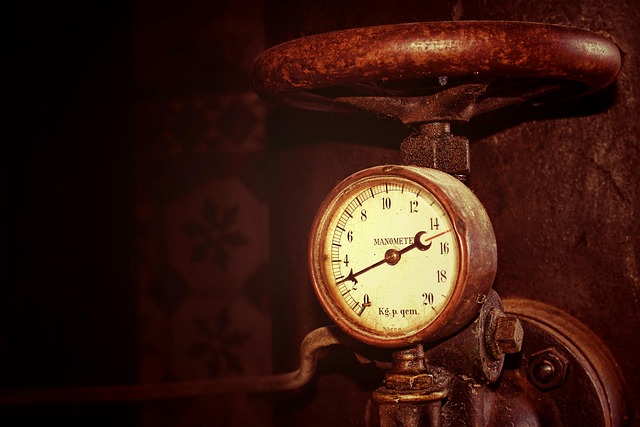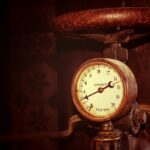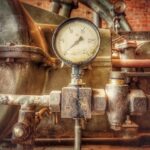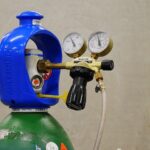What Pressure Valves Are and What They Do
Pressure valves, such as safety valves, excess flow valves, relief valves and others, are engineered to be either opened or closed at pre-set pressure levels. Their main objective is to ensure that system pressure is kept within acceptable range. Trivedi and Associates provides testing, calibration and certification of safety valves and excess flow valves as per rules and regulations (e.g. SMPV(U) Rules, Rule-18 etc.). They are the products of their health that ensures the integrity of complete systems, and that is why Pressure Valve Health Checks in Gujarat became the standard of compliance and industrial safety.
They are also involved in pressure vessel inspection as required by Rule 19, and in NDT (Non-Destructive Testing) such as ultrasonic thickness inspection, visual inspection etc.
Unnoticed Until Failure: The Quiet Danger
Pressure valves never capture the attention of most people- until they malfunction in a disastrous case. Since when they work well, they are nearly invisible, they are part of the infrastructure that is thought to be solid. The issue is that most of the breakages or degradation mechanisms are internal or insidious, such as corrosion at the back of the flange, material thinning, inoperative springs, microcracks, and so on, which silently worsen the action. With the Investment in Pressure Valve Health Checks in Gujarat, industries can not only save their fines and accidents but also confirm their desire to act sustainably and safely.
It is only under pressure and when a gasket malfunctions or the valve does not respond as it should that the damage will become apparent and in many cases, devastating.
What Can Go Wrong Without Regular Health Checks
There are various things that may go wrong without frequent checks. There is a long list of them, though some of the more severe failure modes include:
- Valves do not open up to their design pressure: internal operating mechanisms become corroded, or frozen.
- Slow or rapid leakages, caused by deteriorated seals, or broken bodies.
- Erosion or corrosion causes thinning of material, which weakens it.
- Springs or discs can lose their tension, or distort such that response is not reliable.
These failures are detrimental to safety, efficiency, environment and cost.
Risk of Overpressure: Explosions & Equipment Failure
Once a pressure valve cannot control its operation, in particular, when it does not open when it should, the excess of overpressure may surpass the design limits. They include equipment like pressure vessels, pipes, compressors, reactors and storage tanks that may rupture or blow. The consequences include:
- Megabreakdown: a tank exploding, a pipe rupture or a boiler exploding.
- Vibrations that destroy equipment in the area.
- Fire risks in the event of the escaping medium being flammable.
The services offered by Trivedi & Associates, such as the excess flow valve calibration and safety valve certification in accordance with Statutory Rules (as with Rule 18 under SMPV(U)) are specifically intended to avoid such failures.
Environmental Hazards in Case of Leaks or Ruptures
Although catastrophic explosion can be prevented, the environmental impact of leaks or ruptures can be devastating:
- The toxic or corrosive materials might be released by pollution of air, soil or water.
- Flammable liquids/gasses can be ignited or cause clouds of vapors.
- The storage facility or chemical plants that contain leaking hazardous materials can cause long-term ecological harm and a risk to the health of the population.
Trivedi Associates requires inspection of pressure vessels, particularly those containing toxic and corrosive chemicals at least once every two years. With non-toxic or non-corrosive materials, the period is longer (every five years) during their excess flow valve calibration service to identify early leaks or material corrosion before the probability of rupture arises.
Key Components of a Pressure Valve Health Check
A complete health check should address a number of areas when it comes to making sure that the pressure valves are trustworthy. Trivedi and associates provide services according to the following elements:
- Visual inspection for corrosion, cracks or wears
- Inspect exterior surfaces, welds, bolts, flanges, body, corrosion, rust, discoloration, pitting.
- Search of cracks, dents, warping, observed deformation.
- Look at check seals and gaskets to see evidence of wear or leakage.
- Visual Inspection is a basic first step of NDT services at Trivedi and Associates.
- Calibration
- The valve pressure that the valve opens to should also be verified and compared to the design or statutory pressure.
- Calibration is performed to verify that the opening pressure, the closing pressure as well as the blowdown (where applicable) all fall within acceptable tolerances.
Trivedi and associates have a calibration lab that is NABL-accredited. Their service provision includes their excess flow valve calibration test bench.
iii. Repairing and Overhauling
- Should defects be detected such as worn springs, broken body, or corroded elements, they have to be replaced or repaired.
- Overhaul consists of cleaning, changing internal parts, reassembling, lubrication, testing.
To ensure pressure valves remain trustworthy, a full health check must cover several key areas. Trivedi & Associates offers services across these components.
Regulatory and Industry Standards
The good industrial safety is based on the observance of the statutory and regulatory standards. Trivedi and associates has a number of rules and regulations under which it runs:
- SMPV(U) Pressure vessel under use safety rules, 2016. Trivedi and Associates are authorized to inspect and certify safety / excess flow valves pursuant to Rule 18; and pressure vessels pursuant to Rule 19.
- Petroleum Rule 2002: Safe Handling, storage, transport of petroleum industry.
- Non-Destructive Testing (NDT) standards, especially ASNT Level II of ultrasonic thickness testing, magnetic particle testing, radiography testing and the like. The systematic services of Non-Destructive Testing offered by Trivedi and Associates meet such well-known standards.
- ISO 9001 certification: The organization is accredited in terms of quality management.
Compliance with regulations does not only assure legal conformance but in many instances, it is coincident with safety, insurance, and environmental regulations.
Benefits of Proactive Maintenance
It is perilous and expensive to wait until there are issues showing up or are disastrous. Rather, active maintenance and frequent health checkups have several advantages:
- i. Improved System Reliability and Efficiency
Provided that pressure valves are operated in accordance with the plan, the system will function without any problems: there will be no sudden shutdowns, no decrease or increase of pressure, no breakage of flows.An accurate, well-serviceable valve will have less leakage, reduced malfunctions and more predictability.
The calibration and inspection services offered by Trivedi and Associates have this specific purpose, to assure that the valves will be reliable.
- Extended Equipment Lifespan
Components are damaged by corrosion, overpressure and mechanical stress with time. Periodic monitoring identifies the initial signs of degradation before it gets out of control. Valves serve as the machinery that can be overhauled or repaired to extend the life cycle of the entire system: the pressure vessels, pipes, pumps, etc, avoiding overloading or wear.
iii. Enhanced Safety for Personnel, Asset, and Environment
The strongest reason, maybe, security. Periodic health checks would prevent such accidents as explosions, leaks, toxic releases. They safeguard those people who handle equipment, safeguard the community and avert environmental catastrophes. In addition, there are financial implications of asset protection (machinery, infrastructure, inventory): it can reduce downtime, decrease insurance premiums, decrease liability risks.
Conclusion
Trivedi and Associates prove that the pressure valves are not simple elements of a system, as they are. They are important safety devices the health of which decides whether an operation is safe or disastrously unsafe. Knowing what may go wrong without frequent checks of the system (overpressure, leaks, damage to the environment) and what may be done to ensure proper health examinations (visual inspection, calibration, repair or overhaul), one cannot help but see a crucial fact that proactive maintenance is not a luxury, but the necessity.
Firms that adopt routine health checks of pressure valves in line with regulatory standards (e.g. SMPV(U), Petroleum Rules, and when using certified calibration and NDT services) can be reliable, have long equipment life, ensure human and environmental safety. This is the reason why Pressure Valve Health Checks in Gujarat have become an essential practice in the industries that intend to be safe, efficient and responsible.
To people who want consistent testing, calibration, inspection, and certification services that match the standards of Indian regulations and quality, Trivedi and Associates can provide their expertise, accredited laboratories, qualified personnel, and full compliance. To find out more please read the above blog.




